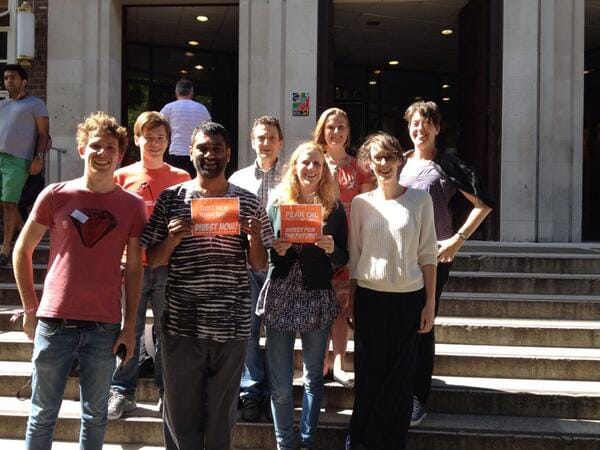SOAS agrees fossil fuel investment freeze

Tom King, BA Politics
SOAS’ Fossil Free campaign has celebrated a partial victory after the School agreed to a freeze on new investments in fossil fuel companies while the possibility of divesting from the industry is explored.
The School’s finance committee will take a decision on whether to continue investing in companies such as Shell, BP and BHP Billiton in November. It is estimated SOAS currently has £2 million invested in the fossil fuel industry.
“a duty to invest responsibly”
Commenting on the decision, SOAS Director Paul Webley said “SOAS is proud of its ethical investment policy, and it is right that we regularly review it and look at how it can be extended. The management of SOAS has a duty to ensure that the School’s investments deliver a financial return – but we also have a duty to invest responsibly.”
“The way human activity is changing our climate is a serious source of concern to staff and students at SOAS. This is increasingly reflected in our academic programmes.”
“We have already made some progress in minimising the environmental impacts of our buildings and facilities. Now is the time to look at how these values may be extended to our financial investments.”
SOAS follows Glasgow University, which earlier this month agreed to halt new investments and to divest from its existing holdings in fossil fuel firms over the next decade. Over 500 students have signed a petition supporting Fossil Free SOAS’ call for divestment from companies involved in fossil fuels and to instead invest in low-carbon assets and renewable energy.
Fossil Free SOAS spokesperson, Julia Christian, said “This is fantastic progress towards cleaning up SOAS’ fossil fuel investments – but it is only a first step. We want to see SOAS pull out of fossil fuels completely, and will be pushing for that decision at the next meeting of finance team in November.”
“We want to see SOAS pull out of fossil fuels completely”
“SOAS has a reputation for specialist teaching in African and Asian cultures, as well as running an increasing number of courses that focus on the environment and the problem of climate change. This is fundamentally at odds with investing in climate-polluting industries such as oil, gas and extractives – and now is the time to put a stop to this. We are delighted that the management is taking this issue so seriously.”
Dr Matthew Haigh, a SOAS lecturer in accounting with expertise in ethical investments, has suggested that the campaigners should also consider the origins of the School’s endowment assets as well as where they are currently invested. For example, the School’s second largest endowment fund, the King Fahd Chair, originates from the Saudi government, whose revenues are almost entirely derived from the petroleum sector.
Additional reporting – Simon Popay, MSc Development Studies




